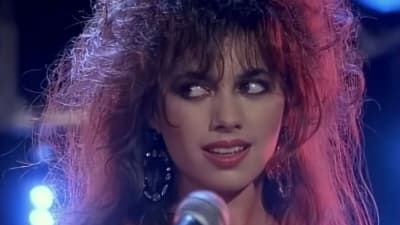
At the start of the 2024/25 season, Arsenal looked like a team ready to take that final step. After two consecutive seasons of promise and near misses, Mikel Arteta’s side had matured. They had a core of young stars, a cohesive system, and fans who believed this would be the year. But as we enter the business end of the campaign, the reality is sobering: Arsenal have stumbled.
They’re still a good team, no doubt. But from potential title challengers and Champions League contenders to scraping for the top four again, the Gunners’ trajectory has dipped. And the reasons aren’t just one-off bad luck. Here’s a look at the three key factors behind Arsenal’s underwhelming 2024/25 season.
1. Injuries That Shook the Foundation
Every club has to deal with injuries, and it’s part of the game. But when they hit your core positions repeatedly, they stop being excuses and start defining obstacles. That’s precisely what happened with Arsenal. The backline, once Arsenal’s fortress, turned into a carousel of makeshift partnerships. Ben White missed nearly two months while Jurrien Timber, Riccardo Calafiori, William Saliba, and Gabriel were out of action. This led to Mikel Arteta deploying seven different backline combinations in 11 Premier League matches, disrupting the team’s defensive cohesion.
Gabriel’s injury affected the team the most, not only because he was Arsenal’s leader at the back, but also because he scored five goals and provided three assists. The 27-year-old was a colossal figure in set pieces for the Gunners. After his hamstring injury in April that ruled him out for the rest of the campaign, Arsenal’s defensive prowess deteriorated, and William Saliba struggled with consistency.
It wasn’t just the defence. Martin Ødegaard never looked quite the same after his ankle knock. His press resistance and creativity, crucial in tight games, were off. Bukayo Saka played through injuries and looked fatigued more often than not, having had repetitive hamstring issues, which also kept him out for two months during a crucial time for the Gunners.
Gabriel Jesus couldn’t stay fit long enough to build momentum, and suddenly Arsenal were starting 17-year-old Ethan Nwaneri in Premier League matches and an inconsistent Raheem Sterling. No knock on Nwaneri, but relying on a teenager in key fixtures highlights how stretched this squad has become. Squad depth has been a buzzword at Arsenal for years, and while the starting eleven can match almost any side in Europe, the bench still tells a different story.
2. A Transfer Window That Raised Questions
For a club aspiring to win titles, Arsenal’s 2024 summer transfer window was… puzzling. No marquee striker was signed, despite everyone, including the fans, pundits, and likely even the kit man, knowing it was the missing piece. Sure, Mikel Merino brought some technical control in midfield, and Riccardo Calafiori added depth in defence. Still, the club failed to land a consistent goal-scorer or a natural winger to ease the burden on Saka and Martinelli. The Gabriel Jesus, Kai Havertz carousel up front didn’t inspire fear in defenders like a top-tier No.9 should.
Then there was the surprise exit of Sporting Director Edu Gaspar in November, a move that flew under the radar publicly but left a vacuum in January. Arsenal needed reinforcements, especially with half the squad limping or out of form, but the winter window came and went with little business. At a time when Manchester City were reinforcing and Liverpool had players returning at the right moment, Arsenal stalled. Standing still in the Premier League is as good as moving backward, and this season proved it.
3. A Mental Block That Won’t Go Away
Perhaps the most frustrating part of Arsenal’s decline this season is how familiar it feels. They’ve looked good early for the third straight year, played some brilliant football, and then started second-guessing themselves once the pressure mounted. This was just when it felt like Arsenal had mentally improved, considering their brilliant UEFA Champions League campaign until now, and that 5-1 win against Real Madrid in the quarter-finals.
You could sense the drop-off in intensity, the careless passes in transition, and the heads dropping after conceding. Arsenal dropped eight points from winning positions by March. That’s not just tactical, that’s mental. And it’s hard to ignore Wayne Rooney’s sharp observation earlier in the season, when he suggested Arsenal had a “psychological problem” when it came to finishing the job.
Rooney’s comments weren’t bitter ex-player analysis; they were on the money. When Arsenal reach the summit, they start looking over their shoulders instead of charging forward. You could see it at Anfield, where they took the lead and shrank. You saw it at the Emirates against West Ham, where they dominated for an hour but couldn’t break through.
You could also see it against PSG in the first leg of the semi-finals; failing to capitalize on their chances at their grandest stage is a sign of mental fragility. It’s as if the ghosts of last season’s title collapse still linger in the dressing room. Football is a mental game as much as it is a physical one, and until Arsenal prove they can push through those moments without flinching, they’ll keep falling just short.
Final Thoughts
There’s no need for doom and gloom. Arsenal is still one of the most exciting young teams in Europe. Mikel Arteta has built a clear identity, and Saka, Ødegaard, Saliba, and Rice will improve. But this season was a missed opportunity: injuries, poor squad planning, and a fragile mindset combined to halt their momentum.
However, they still have a chance to put this all to bed, with a second leg against Paris Saint-Germain in the Champions League semi-final, Arteta’s men trail by just one goal. Anything can happen in football, and a dramatic victory could save their season and a first Champions League final since 2006. Overall, the Gunners faithful will rightly expect a more substantial showing next season, but for that to happen, the club must learn from these mistakes. Not just on the pitch, but in the transfer room and between the ears as well
More must-reads:
- Dominant to disaster: Implosion of Galaxy something to behold
- Why Vikings could benefit from historic 2025 international slate
- The 'NBA Draft Lottery winners since 2000' quiz
Customize Your Newsletter
 +
+
Get the latest news and rumors, customized to your favorite sports and teams. Emailed daily. Always free!








